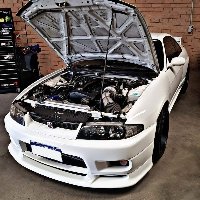V35 / 350z Na Performance Upgrades
Announcements
-
Similar Content
-
Latest Posts
-
If a magnet doesn’t stick to anything except another magnet then it’s not a very good magnet and is probably just a piece of steel
-
Magnetic drain plugs are fine. Just don't buy cheap shit ones. They're actually better than letting magnetic shit float around in your oil. The magnet also didn't just "fall out". OP was drilling the plug out which allowed it to come out. Even some OEM plugs are magnetic.
-
By joshuaho96 · Posted
I have to say, I was briefly considering getting a magnetic drain plug but never could be bothered out of laziness/cheapness and now I'm very glad I didn't. -
Update: I got the magnet out. I bought 3 different flexible magnetic reach tools, but none of them worked. The magnet on the tip was all less than 2lbs of force, so i had to buy a special cylindrical magnet that had a pull force of 9lbs. The magnet finally came in the mail yesterday, so i got under the car to get to work. The super strong magnet isn't that long, so i only have about 1 finger pinch lengths to hold it. I was so scared when i was going in the hole, that the 9lb magnet would just fly away inside the oil pan never to be seen again, but i had my butt cheeks clenched and finger gripped on that thing so tight, i managed to get it to suck the other magnet out. It was a victory for me last night.
-






Recommended Posts
Create an account or sign in to comment
You need to be a member in order to leave a comment
Create an account
Sign up for a new account in our community. It's easy!
Register a new accountSign in
Already have an account? Sign in here.
Sign In Now